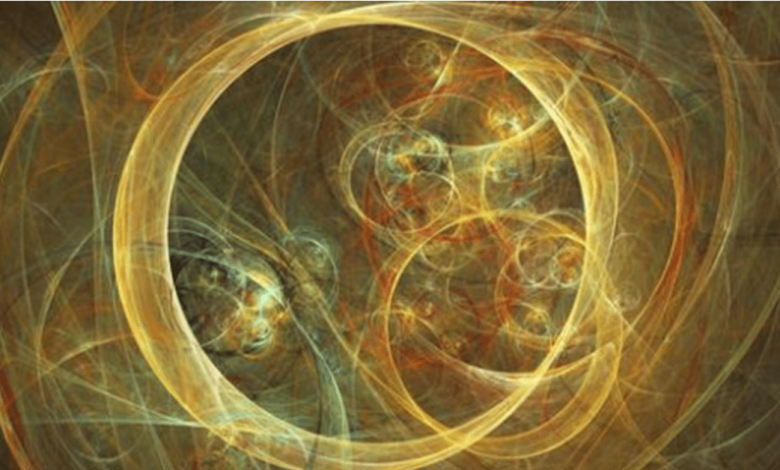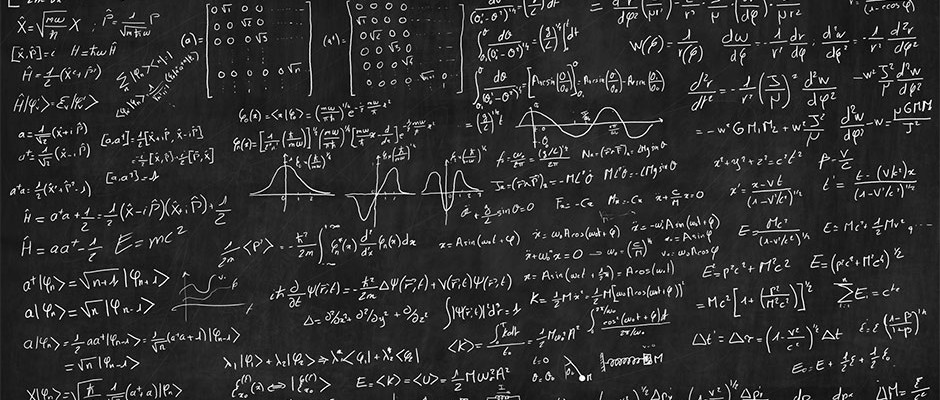What God, quantum mechanics and consciousness have in common

In my 20s, I had a friend who was fantastic, enchanting, Ivy-educated and also abundant, successor to a household fortune. I’ll call him Gallagher. He could do anything he wanted. He tried out, dabbling in neuroscience, regulation, ideology as well as other fields. Yet he was so critical, so picky, that he never settled on a job. Absolutely nothing was good enough for him. He never ever found love for the very same reason. He additionally disparaged his close friends’ choices, so much so that he estranged us. He wound up bitter and also alone. At the very least that’s my guess. I haven’t talked to Gallagher in decades.
There is something as being as well picky, especially when it concerns things like work, love as well as sustenance (even the pickiest eater has to eat something). That’s the lesson I obtained from Gallagher. However when it comes to answers to huge secrets, most of us aren’t choosy enough. We decide on answers for negative reasons, for instance, due to the fact that our moms and dads, priests or teachers think it. We believe we need to think something, yet in fact we don’t. We can, as well as should, make a decision that no answers suffice. We must be agnostics.
Some people confuse agnosticism (not knowing) with lethargy (not caring). Take Francis Collins, a geneticist who directs the National Institutes of Wellness. He is a passionate Christian, that thinks that Jesus executed miracles, died for our wrongs and increased from the dead. In his 2006 bestseller The Language of God, Collins calls agnosticism a “cop-out.” When I interviewed him, I informed him I am an agnostic and also challenged “cop-out.”.
Collins apologized. “That was a put-down that should not relate to earnest agnostics who have considered the proof and still do not discover an answer,” he claimed. “I was reacting to the agnosticism I see in the clinical area, which has not been reached by a cautious examination of the proof.” I have actually taken a look at the proof for Christianity, as well as I locate it implausible. I’m not persuaded by any kind of scientific production tales, either, such as those that portray our universes as a bubble in a nautical “multiverse.”.
People I admire fault me for being also doubtful. One is the late spiritual theorist Huston Smith, who called me “convictionally damaged.” One more is megapundit Robert Wright, an old friend, with whom I have actually commonly suggested regarding evolutionary psychology and also Buddhism. Wright when asked me in exasperation, “Do not you think anything?” Actually, I believe great deals of things, as an example, that battle misbehaves as well as must be abolished.
Yet when it concerns concepts about ultimate truth, I’m with Voltaire. “Doubt is not an enjoyable problem,” Voltaire said, “however assurance is an absurd one.” Doubt protects us from dogmatism, which can easily change right into fanaticism and what William James calls a “premature closing of our accounts with fact.” Listed below I defend agnosticism as a stance toward the presence of God, analyses of quantum mechanics as well as concepts of awareness. When considering supposed answers to these 3 puzzles, we must be as particular as my old good friend Gallagher.
The trouble of evil.
Why do we exist? The solution, according to the major monotheistic religious beliefs, consisting of the Catholic belief in which I was increased, is that an all-powerful, supernatural entity developed us. This deity likes us, as a human daddy enjoys his children, and desires us to behave in a certain means. If we’re good, He’ll award us. If we’re bad, He’ll penalize us. (I use the pronoun “He” due to the fact that most bibles define God as man.).
My major objection to this explanation of reality is the trouble of evil. A casual glance at human background, as well as at the world today, exposes enormous suffering and injustice. If God likes us and also is supreme, why is life so dreadful for many individuals? A basic response to this inquiry is that God gave us free will; we can choose to be poor along with excellent.

The late, great physicist Steven Weinberg, an atheist, who passed away in July, slaps down the free choice argument in his book Desire for a Last Theory. Noting that Nazis killed most of his relatives in the Holocaust, Weinberg asks: Did countless Jews have to die so the Nazis could exercise their free will? That doesn’t seem reasonable. And what concerning children who get cancer? Are we meant to assume that cancer cells have free choice?
On the other hand, life isn’t always hellish. We experience love, friendship, journey and also heartbreaking charm. Could all this really originated from random accidents of bits? Even Weinberg concedes that life sometimes seems “much more gorgeous than strictly necessary.” If the issue of wicked avoids me from believing in a caring God, then the issue of elegance maintains me from being an atheist like Weinberg. Thus, agnosticism.
The trouble of info.
Quantum technicians is science’s most specific, effective theory of truth. It has predicted plenty of experiments, generated plenty of applications. The difficulty is, physicists and philosophers disagree over what it means, that is, what it states regarding how the globe functions. Numerous physicists– most, probably– abide by the Copenhagen analysis, progressed by Danish physicist Niels Bohr. Yet that is a type of anti-interpretation, which claims physicists must not try to understand quantum auto mechanics; they need to “shut up and compute,” as physicist David Mermin once placed it.
Thinker Tim Maudlin deplores this situation. In his 2019 publication Approach of Physics: Quantum Theory, he mentions that a number of analyses of quantum technicians explain in detail exactly how the world works. These include the GRW model suggested by Ghirardi, Rimini as well as Weber; the pilot-wave theory of David Bohm; and also the many-worlds theory of Hugh Everett. But below’s the irony: Maudlin is so scrupulous in pointing out the flaws of these analyses that he enhances my hesitation. They all seem hopelessly kludgy as well as unbelievable.
Maudlin does not examine analyses that recast quantum mechanics as a theory regarding information. For positive point of views on information-based analyses, have a look at Past Strange by journalist Philip Ball and The Climb of Info by astrobiologist Caleb Scharf. Yet to my mind, information-based takes on quantum auto mechanics are also much less possible than the analyses that Maudlin scrutinizes. The principle of info makes no sense without aware beings to send out, receive as well as act upon the info.
Presenting awareness right into physics weakens its case to neutrality. Additionally, regarding we know, awareness occurs only in specific microorganisms that have actually existed for a brief duration right here on Earth. So how can quantum auto mechanics, if it’s a theory of details as opposed to issue as well as energy, apply to the entire cosmos given that the huge bang? Information-based theories of physics look like a throwback to geocentrism, which thought deep space revolves around us. Given the troubles with all analyses of quantum auto mechanics, agnosticism, once again, strikes me as a sensible position.

Mind-body problems.
The argument over consciousness is a lot more fractious than the dispute over quantum auto mechanics. Just how does issue make a mind? A couple of years ago, a consensus seemed to be emerging. Philosopher Daniel Dennett, in his cockily entitled Consciousness Described, insisted that consciousness clearly arises from neural procedures, such as electrochemical pulses in the brain. Francis Crick and Christof Koch suggested that awareness is produced by networks of neurons oscillating in synchrony.
Gradually, this agreement broke down, as empirical proof for neural theories of consciousness stopped working to materialize. As I explain in my recent publication Mind-Body Issues, there are now an excessive variety of concepts of awareness. Christof Koch has tossed his weight behind integrated information theory, which holds that awareness may be a home of all matter, not simply brains. This concept experiences the exact same troubles as information-based concepts of quantum technicians. Theorists such as Roger Penrose, that won last year’s Nobel Prize in Physics, have actually conjectured that quantum impacts underpin consciousness, however this concept is a lot more lacking forthcoming than incorporated information theory.
Scientists can not even settle on what form a theory of consciousness ought to take. Should it be a philosophical treatise? A totally mathematical model? A big formula, possibly based upon Bayesian calculation? Should it obtain principles from Buddhism, such as anatta, the teaching of no self? All of the above? None of the above? Consensus appears farther away than ever before. And that’s a good thing. We need to be unbiased concerning our minds.
So, what’s the difference, if any type of, in between me as well as Gallagher, my former close friend? I like to assume it’s a matter of design. Gallagher ridiculed the choices of others. He resembled among those mean atheists that revile the faithful for their beliefs. I try not to be dogmatic in my shock, as well as to be thoughtful toward those who, like Francis Collins, have actually located solutions that work for them. Also, I get a bang out of innovative theories of everything, such as John Wheeler’s “it from little bit” as well as Freeman Dyson’s principle of optimum variety, even if I can’t welcome them.

I’m certainly a skeptic. I question we’ll ever recognize whether God exists, what quantum mechanics suggests, how issue makes mind. These three puzzles, I believe, are various elements of a single, bulletproof mystery at the heart of points. Yet one of the satisfaction of agnosticism– possibly the best pleasure– is that I can keep looking for answers as well as hoping that a revelation waits for just over the horizon.
